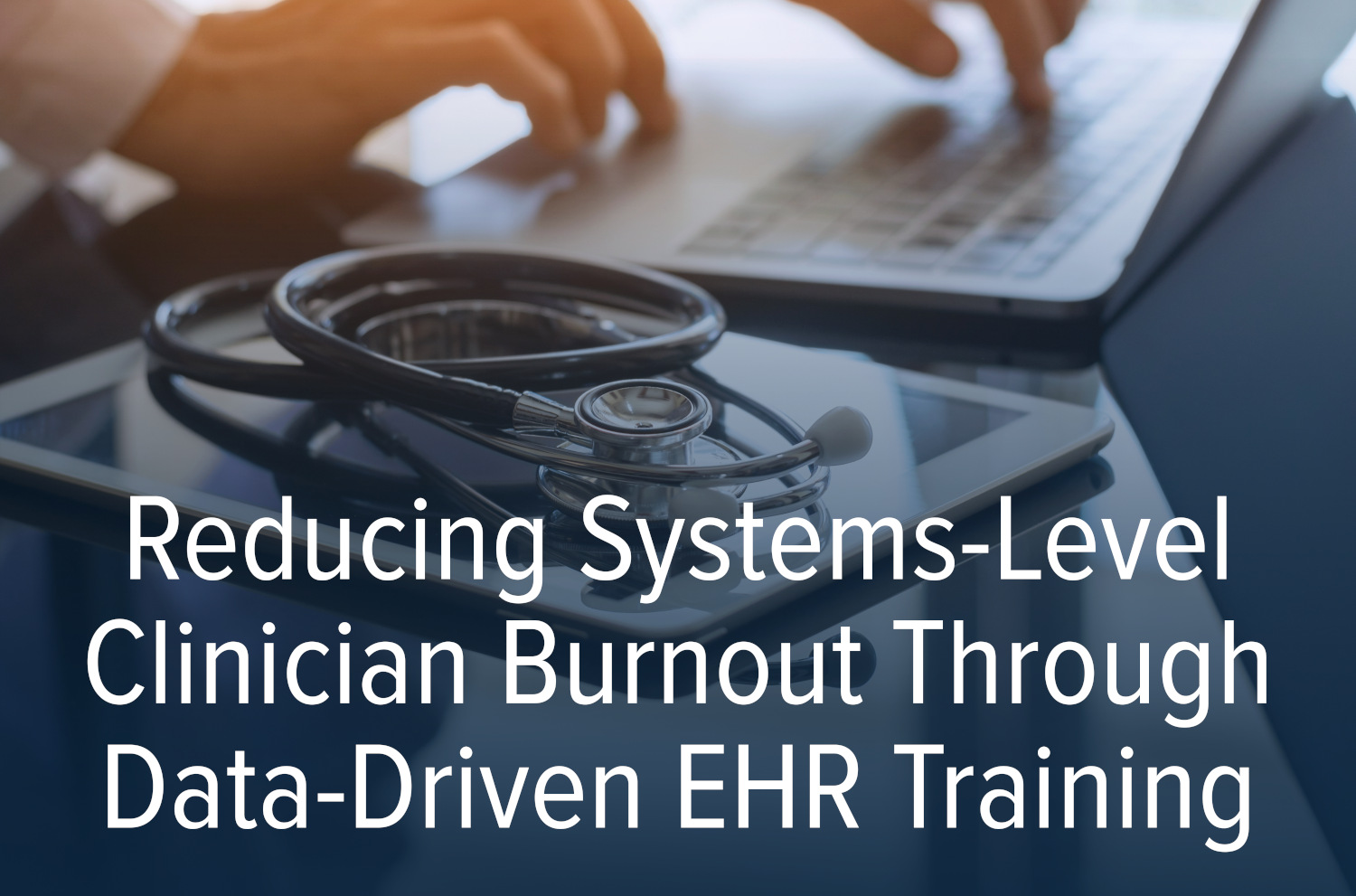
Clinician burnout is a critical issue that affects the well-being of healthcare professionals and compromises patient care. While electronic health record (EHR) systems are intended to streamline processes and maximize efficiencies, they have inadvertently contributed to clinician burnout by introducing complex workflows and documentation burden.
A 2022 survey by the Harris Poll for athenahealth reveals the complicated relationship between clinicians and EHR systems. On one hand, the physicians surveyed overwhelmingly endorse technology with 90% saying better patient data would instill more confidence in their ability to support patient needs. Moreover, 85% say the patient experience is better with easier access to data. 78% say they have sufficient information about medical history and the context for patient visits, and 71% report EHR platforms allow them to provide high-quality care.
On the other hand, 59% of physician respondents say they are frustrated by the challenges of accessing clinical information on a weekly basis, and 58% say they often (once a week or more) feel stress because of information overload. Also, according to the survey, the leading cause of regular burnout is excessive documentation requirements (57%). Additionally, 91% of respondents say the burden of regulatory requirements is getting worse, 72% do not believe their organization is working to reduce the time they spend on administrative tasks so they can focus on patient care, and 63% express feeling overwhelmed by administrative requirements and burdens on a weekly basis.
So, while clinicians do see the value in EHR systems, they are perpetually frustrated by inefficient processes and documentation/administrative requirements. As those in healthcare know, no two EHR systems are alike. For instance: a clinician may have years of EHR experience but they need to understand a new organization’s or department’s workflow — customizations, nuances, and all. An adaptive online learning platform offers a two-pronged solution to improving systems level burnout: reduces time spent training and simultaneously collects data to optimize EHR processes.
Reduce training time and streamline care with adaptive online learning
Hospitals onboarding clinicians — new or experienced and anywhere in between — can streamline the EHR training process with the help of adaptive online learning. Traditional training methods often involve lengthy in-person sessions, which can be time-consuming and disruptive to clinicians’ workflows. With an adaptive online learning platform, healthcare organizations can provide a personalized learning experience that caters to individual learning needs. Adaptive learning ensures new clinicians get all the information they need, while experienced trainees don’t spend time learning what they already know. Incorperating adaptive online learning into any blended training program greatly reduces time spent learning, reduces costs, and gets clinicians on the floor treating patients faster.
By tailoring the training experience, clinicians can efficiently acquire the necessary skills to better navigate EHR systems, reducing frustration and minimizing the impact on their workload. A study by the KLAS Arch Collaborative, “the single greatest predictor of user experience is not which EHR a provider uses nor what percent of an organization’s operating budget is spent on information technology, but how users rate the quality of the EHR-specific training they received.” Across organizations included in the study, there were 475 instances in which two physicians of the same specialty using the same EHR system in the same organization reported opposing responses as to whether EHR enables them to deliver high-quality healthcare (the response choices were “strongly agreed” or “strongly disagreed”). In over 89% of these instances, the physician who strongly agreed also reported better training, more training efforts, or more effort expended in setting up EHR personalization. Higher quality training equates to more efficient work and higher clinician satisfaction.
Furthermore, doctors with high EHR satisfaction are nearly five times more likely to report they’ll stay at their organization. In a time of labor shortages and widespread burnout, organizations cannot afford to overlook how their EHR training delivers in terms of efficacy and quality of learning experience.
How your online learning platform can help optimize your EHR system
In addition to reducing training time and improving the EHR experience, an online learning platform can contribute to the optimization of EHR processes. These platforms collect valuable data on learner interactions, system usage patterns, and user feedback. By leveraging this data, healthcare leaders can gain insights into the specific challenges clinicians face when using the EHR system to make informed system-level improvements. This information can be used to identify areas for revision, streamline workflows, and enhance usability. With the guidance of informatics leaders, hospitals can collaborate to implement necessary changes and updates based on the collected data, ultimately resulting in a more user-friendly and efficient EHR system.
Additionally, learner data can be used to identify skilled and highly proficient EHR users for future training. It can also identify struggling users and narrow down which topics they have the most trouble with, enabling informed one-on-one coaching, small group lab training, and other interventions.
Reducing systems-level clinician burnout through data-driven EHR training requires the collaboration and support of key decision makers. By leveraging adaptive online learning platforms, healthcare organizations can reduce training time while simultaneously collecting valuable data to optimize EHR processes. Through effective leadership and collaboration, hospitals can foster a culture of continuous improvement, ultimately leading to improved clinician well-being and enhanced patient care.
From the beginning, Amplifire has relied on innovative brain science to guide its product development to create the most effective learning and training solution, perfectly tailored to the way the human brain works. Learn more about how Amplifire helps people learn better and faster with online learning by requesting a demo.







